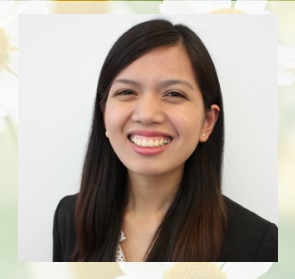Highlighting GNAO Nurses —
November brings us one more story for the year 2016 in our segment:
Geriatric Nursing Never Gets Old… Highlighting Nurses in Gerontology!
In case you forgot, this segment highlights nurses working in the field of gerontology and introduces you to their world! We invite you to read up on our nurses and to engage in discussion with them via the Student Discussion Forum, Social Media (facebook or twitter) or directly through the contact information that they provide.
For the month of November 2016, we are shaking things up and highlighting a student who has great passion for gerontological nursing. Patricia Julian is currently a fourth year nursing student at Ryerson University. She is also our Student/New Graduate Liaison.
Patricia Julian

Patricia Julian
Please describe to us your current role and what it is that you do in gerontology.
I am a current fourth year student at Ryerson University. I am completing my pre-consolidation and consolidation placements at St. Michael’s Hospital Heart and Vascular Program. Majority of the patients I care for at placement are older adults and to provide the best care for my patients, I often consider age-related changes when I assess and deliver nursing interventions at the floor. For example, we regularly complete the confusion assessment method for all patients over 65 so we can detect any cases of delirium early on!
I also work as a research assistant for Lori Schindel Martin, an Associate Professor at the Daphne Cockwell School of Nursing at Ryerson University. We are currently completing a project aiming to explore emergency department staff’s learning needs with regards to caring for patients exhibiting responsive behaviours. We hope that the project can lead to a educational program on person-centred dementia care tailored for the emergency department.
Why did you decide to pursue gerontological nursing?
I volunteered at a long-term care home five years ago. My observations of the nursing staff and the residents left me with a deep impression. I falsely believed that seniors living with dementia and multiple comorbidities experienced poor quality of life. Yet my conversations with the resident changed my mind. I was impressed by the optimism and wisdom many residents held about life. I also admired the excellent nursing care the staff provided and the therapeutic relationships they formed with the residents. It was clear that the care staff provided enabled the residents to maintain their health or delay any complications from their disease. Desiring to give back to the previous generation and looking for fulfilling career with a positive impact, I decided to pursue nursing with the aim of working with older adults.
Many of us have been mentored or inspired by another nurse at some point in our nursing journey. Is there one person in particular who has helped you along the way in becoming a gerontological nurse?
Lori Schindel Martin, who I mentioned earlier, has made a positive impact on my education and clinical practice. Lori has encouraged me to enrich my gerontology knowledge and has given me many learning opportunities to do so. She has also kindled my interest in research, which I hope to pursue one day to make an impact on gerontological nursing care. I am thankful for the learning opportunities Lori has provided and I am not sure if I would have gained so much experience in gerontological research without her help!
What is one of the most fulfilling aspects of being a gerontological nurse?
The most fulfilling aspect of caring for an older adult is knowing that I am caring for someone with rich life experiences. I am caring for a person, who has lived a life, has seen a lot and has stories to tell.
What is one thing you would want to share about gerontological nursing that most people might not otherwise know?
Any nursing specialty (except maternity, pediatrics, neonatal ICU) is part of gerontological nursing! There is a common misperception that gerontological nurses only work in long-term care. I disagree. With the aging population and increasing incidences of disease as people age, a substantial number of patients that nurses will encounter would be older adults. Thus, it is imperative for all nurses to learn about gerontological nursing
Do you have any advice for nurses or students interested in pursuing gerontology as a specialty?
My suggestion is to becoming involved in professional gerontological nursing or interprofessional organizations (e.g., Gerontological Nursing Association of Ontario, Canadian Association of Gerontology). Becoming involved will allow you to network with like-mined professionals and learn about the current trends in the care of older adults. I also suggest pursuing opportunities to be a research assistant in a gerontological nursing or geriatrics-related project. This experience will help you become knowledgeable in best practices in gerontological nursing care.
If anyone is interested in connecting with you further, how can they reach you?
If you have any questions about joining GNAO or getting involved, you can email Patricia Julian.
If you are a nurse who is working in gerontology and would like to share your story on our page, email Annie
GNAO Newsletter
Find the link to the newsletter on the Resources page
